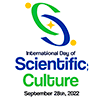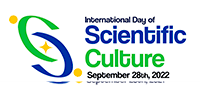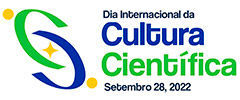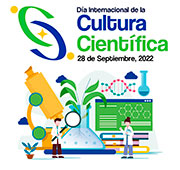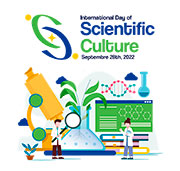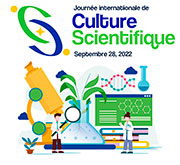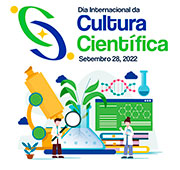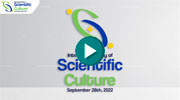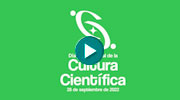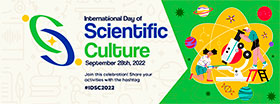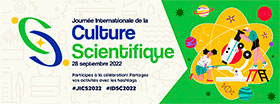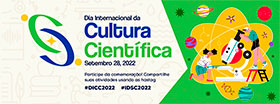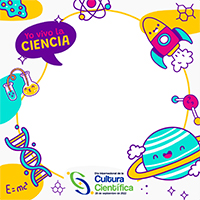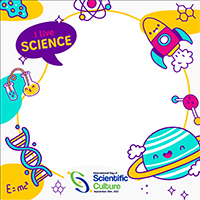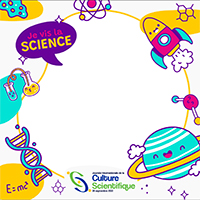WHY CELEBRATE A DAY OF SCIENTIFIC CULTURE?
The International Day of Scientific Culture (IDSC) aims to highlight the importance of scientific culture in today's world; and celebrate activities and institutions that provide spaces for people to make science a relevant part of their lives.
In the midst of a global pandemic – as well as ongoing challenges such as climate change, energy demands, and sustainable societies – it is of paramount importance to engage and empower more and more people through science, as a key means to informed decision-making to address such issues. Our efforts are critical to the future of humanity’s well-being and the health of our planet.
EMany institutions and individuals around the world contribute to strengthening scientific culture through public communication of science. But more needs to be done. Therefore, in 2020 a group of institutions launched the initiative of the International Day of Scientific Culture.
September 28, the anniversary of the start of the broadcasts of the series 'Cosmos', one of the most influential outreach programs in history, was chosen to celebrate each year the International Day of Scientific Culture.
The institutions who founded the initiative in 2020 was Mexican Society for the Communication of Science and Technology, Mouvement International pour le Loisir Scientifique Et Technique (MILSET), Youth Science and Technology Activities National Network (Mexico), Mexican Network of Science Recreation Workshops, Fibonacci • Innovation and Scientific Culture (Mexico), CIENTEC Foundation (Costa Rica), Distance State University (Costa Rica), National Laboratory of Nanotechnology (Costa Rica).
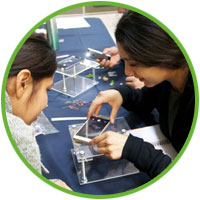
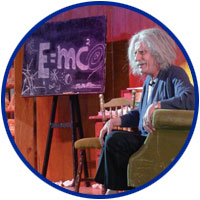
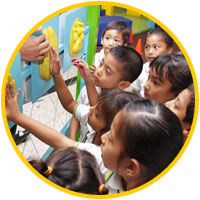
SCIENTIFIC CULTURE
Science is a powerful tool to understand reality and to use it to solve the needs and problems that are presented to us. Science is a human enterprise, and as such, in terms of values, knowledge and applications, it goes beyond the domain of the scientific community). Science is a key element in the development of society: it needs to be integrated into the action of organizations, groups and individuals, for the identification and solution of their needs and problems.
People require a scientific culture that encompasses not only knowledge of basic concepts and facts from various disciplines; also, the general understanding of the role of science in the progress of society and the appreciation of its contributions; the vision of the world and reality from a knowledge-based perspective; and the application of science-derived knowledge in everyday life decisions and situations. At the same time, society needs, in order to progress comprehensively, scientifically educated citizens.
HOW TO CELEBRATE THE IDSC
Carry out activities
Institutions, as well as individuals, can celebrate the DICC through the realization of one or more activities consistent with their respective missions and functions, which are aimed at:
- disseminating the concept of scientific culture,
- highlighting its importance in today's world,
- promoting the integration of science as part of citizen culture
- highlighting the need for citizens in general (including politicians, educators, social and business leaders, etc.) to be scientifically educated.
Activities can be organized by the institution individually, by institutions working together within a country, or by institutions working together across countries. The list of organizations that have decided to celebrate the IDSC can be consulted in the section “Participating Institutions”, which is periodically updated.
The target audiences can be very diverse:
- By age: Children, teenagers, adults.
- By professional activity: Teachers, researchers and technologists, politicians and public officials, professionals from various disciplines (biologists, mathematicians, sociologists, educators, chemists, biotechnologists, etc).
- By areas of interest: People in a street situation, people with disabilities, domestic workers, housewives, parents, etc.
- By level of schooling: Students of different educational levels, illiterate population, etc.
Disseminate
Disseminate the celebration of the IDSC through media accessible to each organization: websites, social networks, radio or television, audio or video channels via Internet, newsletters, etc.
The materials in the “Resources” section may be used.
Record and publish a testimonial
Participating educators and science communicators can, if they wish, record one or more short videos (from 30 to 60 seconds) with their cell phones or tablets, answering to one or both of the following questions:
- Why is scientific culture important?
- What do you do in your daily life to enjoy science and to take advantage of it?
Post your video on your personal web site or social media (Facebook, Instagram or YouTube channel) between the night of Tuesday, September 27, and early Wednesday 28, accompanying the video with the hashtag #IDSC2022 and #DICC2022, as well as tagging the official celebration profiles:
- Facebook: https://www.facebook.com/IDSciCult
- Instagram: https://www.instagram.com/idscicult/
- Twitter: https://twitter.com/IDSciCult
You are encouraged to invite other colleagues to join the celebration of the DICC, by recording and publishing their own video.
Share materials
If you produce materials about the IDSC in languages other than Spanish and English, you can share them by sending them to the mail: Esta dirección de correo electrónico está siendo protegida contra los robots de spam. Necesita tener JavaScript habilitado para poder verlo. to make them available to other institutions and individuals.
Report what you did
You are encouraged to publish notes and videos about the activities and results of your institution.
Participating institutions are encouraged to record information about their activities and the public served. The report of the IDSC 2021 celebration can be consulted in October 2021 in the section “Activities throughout the world”.
RESOURCES
Font
Logo
Communiqué
For publications
Videos
Facebook headers
Twitter headers
Frames
ACTIVITIES THROUGHOUT THE WORLD
In this section you will be able to consult the agenda of activities that will be carried out on September 28, the institutions of several countries that have joined together to celebrate the International Day of Scientific Culture.
You can check out some of the activities carried out in 2020, 2021, 2022 and 2023.
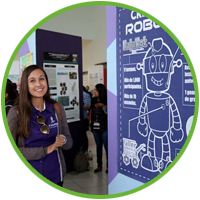
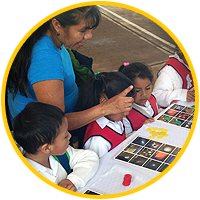
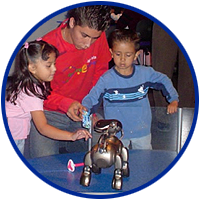
AFFILIATED AND PARTICIPATING INSTITUTIONS
This year the IDSC will be celebrated by various organizations, among which are Universities, Research Centers, Scientific Associations, State and National Councils of Science and Technology, Networks of researchers and science communicators, Museums and Science Centers, Civil Associations, among others.
If you wish to formally join the celebration, send an institutional letter to the e-mail Esta dirección de correo electrónico está siendo protegida contra los robots de spam. Necesita tener JavaScript habilitado para poder verlo. or register here: https://forms.gle/t5Uvpo5ZVCPH7sPo8
INTERNATIONAL ORGANIZATIONS
AFRICA
ASIA
EUROPE
AMERICA
CONTACT
International Day of Scientific Culture (IDSC)
Esta dirección de correo electrónico está siendo protegida contra los robots de spam. Necesita tener JavaScript habilitado para poder verlo.
Facebook: https://www.facebook.com/IDSciCult
Instagram: https://www.instagram.com/idscicult/
Twitter: https://twitter.com/IDSciCult
Youtube








